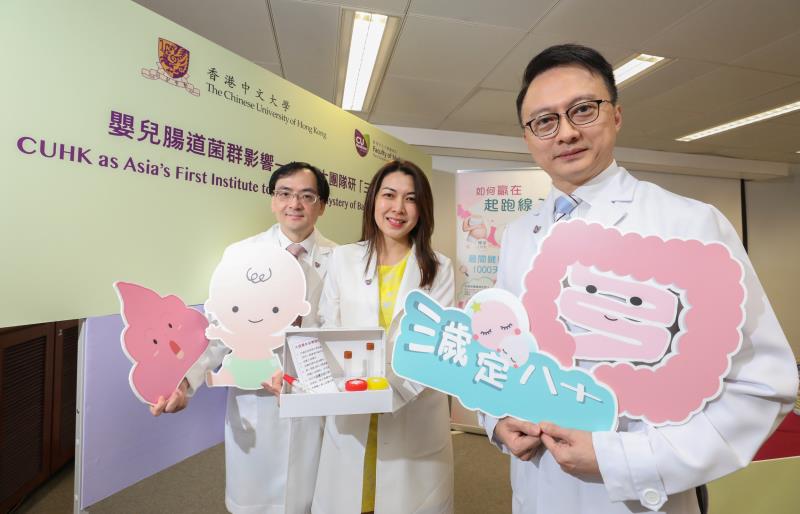
Asia’s first study supported by the Helmsley Charitable Trust on the influence of infant gut microbiota in the development of Crohn’s disease (CD) has been launched by the Chinese University of Hong Kong (CUHK).
“CUHK is the first in Asia to be supported by the Helmsley Charitable Trust, a prestigious charitable foundation based in New York, to investigate how gut microbiota affects child development,” said Professor Francis Chan, Dean of the Faculty of Medicine and Director of the Centre for Gut Microbiota Research, CUHK.
“The prevalence of CD has increased in Hong Kong and in urban cities in China. This is likely due to changes in gut microbiota. Our new study aims to understand the link between maternal and newborn gut microbiome in relation to CD, and to assess how environmental and dietary factors affect the gut microbiome and metabolome of healthy and CD adults as well as their babies,” explained Professor Siew-Chien Ng, Associate Director of CUHK’s Centre for Gut Microbiota Research.
The MOMy-CD (Mother-to-Infant Transfer of Bacteriome, Virome, Fungome and Meatbolome in Health and Crohn’s disease) multicentre prospective cohort study will recruit 100,000 participants, including pregnant women with CD, healthy pregnant women, and their spouse from Hong Kong (highly urbanized) or Foshan (urbanized) and Kunming (less urbanized) in mainland China.
Biological samples, including parental and infant stool, meconium, saliva, breast milk, cord blood and placenta, will be collected. Information on dietary habits, including consumption of food additives, and environmental factors will be documented in questionnaires. The newborns will be followed up for 7 years with collection of microbiome samples at various intervals. Samples collected will be analyzed by advanced metagenomics DNA sequencing. All study participants will be provided a summary report on their own gut microbiome, disease risk and relevant dietary advice at the end of the first year.
“In the study, we would be able to identify infants with gut microbial dysbiosis. We would thus be able to provide those at risk with preventive measures to modulate gut microbiota in early life for prevention of diseases, including inflammatory bowel disease [IBD], childhood obesity, asthma and other allergic diseases,” said Ng. “The preventive measures would include dietary modifications, use of probiotics and prebiotics, as well as caution in the use of some antibiotics that may actually harm the gut bacteria.”
Huge variations in human gut microbiome exist across different age groups and geographical regions. Early childhood (ie, before the age of 3 years) is the golden period when the gut microbiome is most sensitive to change, and is thus the best time for manipulation for disease prevention in later life. The presence of Klebsiella pneumoniae and Proteus mirabilis in the gut microbiome, as well as the use of antibiotics in early years of life, have been shown to be associated with the development of IBD. [Nature 2012;486:222-227; Front Immunol 2014;5:427; Cell Host Microbe 2010;8:292-300; Gut 2011;60:49-54]